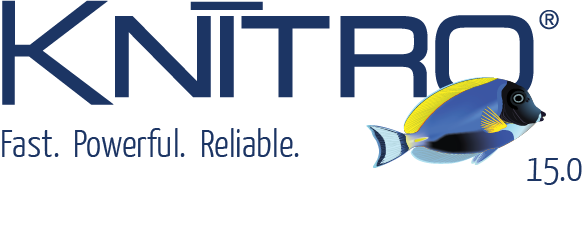Artelys Knitro 13.1: solving MINLP faster than ever!
Mixed-integer nonlinear problems offer a very natural way to model many engineering problems where nonlinear functions can capture the complex behavior of physical processes and integer variables can be used to model discrete decisions.
Artelys Knitro 13.0 introduced a new parallel branch and bound to solve our customers’ most complex MINLP. Artelys Knitro 13.1 pushes it further by adding several key features:
- New heuristics to quickly find good feasible solutions.
- Possibility for the user to pass an initial integer solution. This solution can even be repaired automatically if infeasible.
- Introduced an automatic restart functionality for higher performances. This allows a MINLP solve to reset the tree search back to the root node after a partial search and restart with an optimized set of solver parameters and cutoff values.
- Significant performance improvements across all discrete and continuous algorithms.
Relying on these new features dedicated to MINLPs, Artelys Knitro 13.1 is 3 times faster on average than version 13.0 on the MINLP benchmarks such as MINLPLib2.
Artelys Knitro 13.1 also introduces a new noise estimation routine for nonlinear objective functions to adapt the derivatives approximation. This is particularly useful when solving black-box optimization problems and relying on an external simulator (network model, finite element methods, chemical reaction, etc.) in which numerical inaccuracies can lead to noisy black-box optimization models.
Additional features of Artelys Knitro 13.1:
- 40% performance improvement on Apple Silicon thanks to the integration of new specialized mathematical subroutines.
- Updated Knitro-MATLAB interface to support the new MATLAB “problem-based” interface.
- New heuristic for solving models with complementarity constraints (MPEC) when using the barrier/interior-point algorithm.
- General performance improvements on nonlinear continuous models in particular when using BFGS or L-BFGS Hessian approximation.
If you want to know more about Artelys Knitro, you can contact us or visit the dedicated web page.

Artelys Knitro 15.0: New Tools for Your Large-Scale Models
Artelys is pleased to announce the release of Knitro 15.0, which provides new algorithms and performance improvements to solve your large-scale optimisation problems, whether linear or non-linear, more quickly.

Artelys Introduces Future Sight: a Visualisation Tool Supporting the Energy Transition
As partner in the European Climate + Energy Modeling Forum (ECEMF) – a Horizon 2020 Europe project uniting research institutes and leading energy modellers in Europe – Artelys has contributed to modeling activities powered by Artelys Crystal Super Grid modelisation tool, and has led the development of a fully-fledged visualisation tool.

Supercharging Optimisation: How Artelys, FICO and NVIDIA cuOpt Join Efforts to Scale Up Energy System Optimisation
As energy system models continue to scale—reaching up to hundreds of millions of variables and constraints—traditional CPU-based optimisation solvers are hitting performance and memory bottlenecks. These increasingly complex models are essential for planning Europe’s energy transition, yet solving them within realistic timeframes has become a pressing challenge.

Artelys is powering SEleNe CC’s Common Grid Model (CGM) Service
Artelys provides maintenance and support services of the calculation module used to perform the European Merging Function (EMF) at SEleNe CC
subscribe to our newsletters
© ARTELYS document.write(new Date().getFullYear()); • All rights reserved • Legal mentions